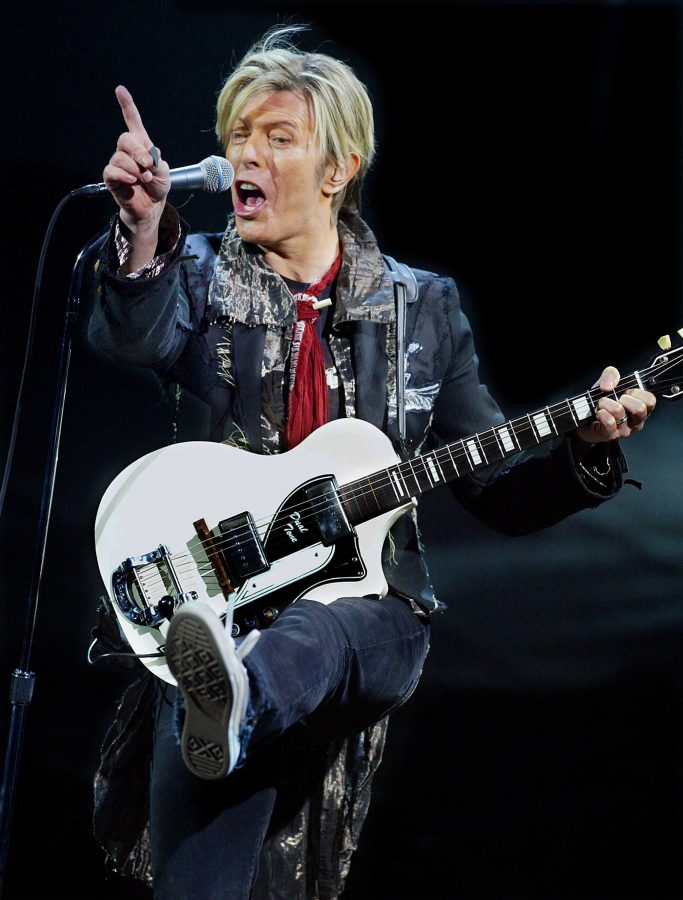“Ground Control to Major Tom, commencing countdown, engines on.”
David Bowie, the chameleonic glam rocker who transcended music with his cosmic imagination and multiple persona metamorphosis, passed away Monday at the age of 69. Hopefully, the musicians he influenced will carry on his ways of bucking against god-sized institutions and social inequality.
Bowie, an iconic musician who left even millennials mourning, impressed a lasting impact on music through his 27 albums beginning in the ’60s. With no reservations, Bowie served as a courageous figure who faced his own hardships and paved a path for future artists to succeed his legacy of defying gender or sexual expectations.
While facing his own internal struggle with his sexuality, Bowie became a popular artist in the ’80s who represented not only those who shared similar adversity, but also underrepresented artists in music.
In an interview with MTV in the early ’80s, he asked MTV why the network wasn’t showing the music videos of talented, black musicians. He was cognizant of his black counterparts being deprived of the same attention he received, so he challenged MTV fearlessly during a time in history where racism was the norm. He went up against a bully with nothing to gain.
With the same streak of independence, his fans continued to cherish his music, as he didn’t concern himself with attaching his name to a movement, but rather only hoped to gain equality for fellow musicians. He accepted blame for his actions in defense of artists of color and resented the standards imposed on him and others unfairly. He exposed white privilege before the conversation became evening news.
Bowie was one of the first celebrities to genderbend and defy norms for which many of his fans then and today may have felt ostracized. Celebrities are capable of impacting the lives of their fans by calling for the acceptance of the same people Bowie fought to see represented in music. Outside of Jaden Smith, few male celebrities are comfortable wearing women’s clothing and show us gender as a spectrum, not an imprisonment.
If we want to erode problematic systems and institutions profiting from them, it would help if we could see it happen in Hollywood from widely admired stars. Actor Matt McGorry from ‘Orange is the New Black’ acknowledges his privilege and calls out racism on social media, but it’s one thing to tweet about an issue or media coverage and another to fight a corporate institution like Bowie did. We know it’s harder for black actors and performers to get jobs. More celebrities should be airing this problem out.
Bowie has left an everlasting impact for the outsiders, who he encouraged to be as eccentric and against the grain of the norm as he was. He did it without a foundation with his name — any one of them — on it.
He used his idiosyncratic demeanor and talent to inspire courage in his fans, and hopefully, celebrities will honor him by fighting against the unfair systems, channeling Ziggy Stardust and his legacy for posterity.



